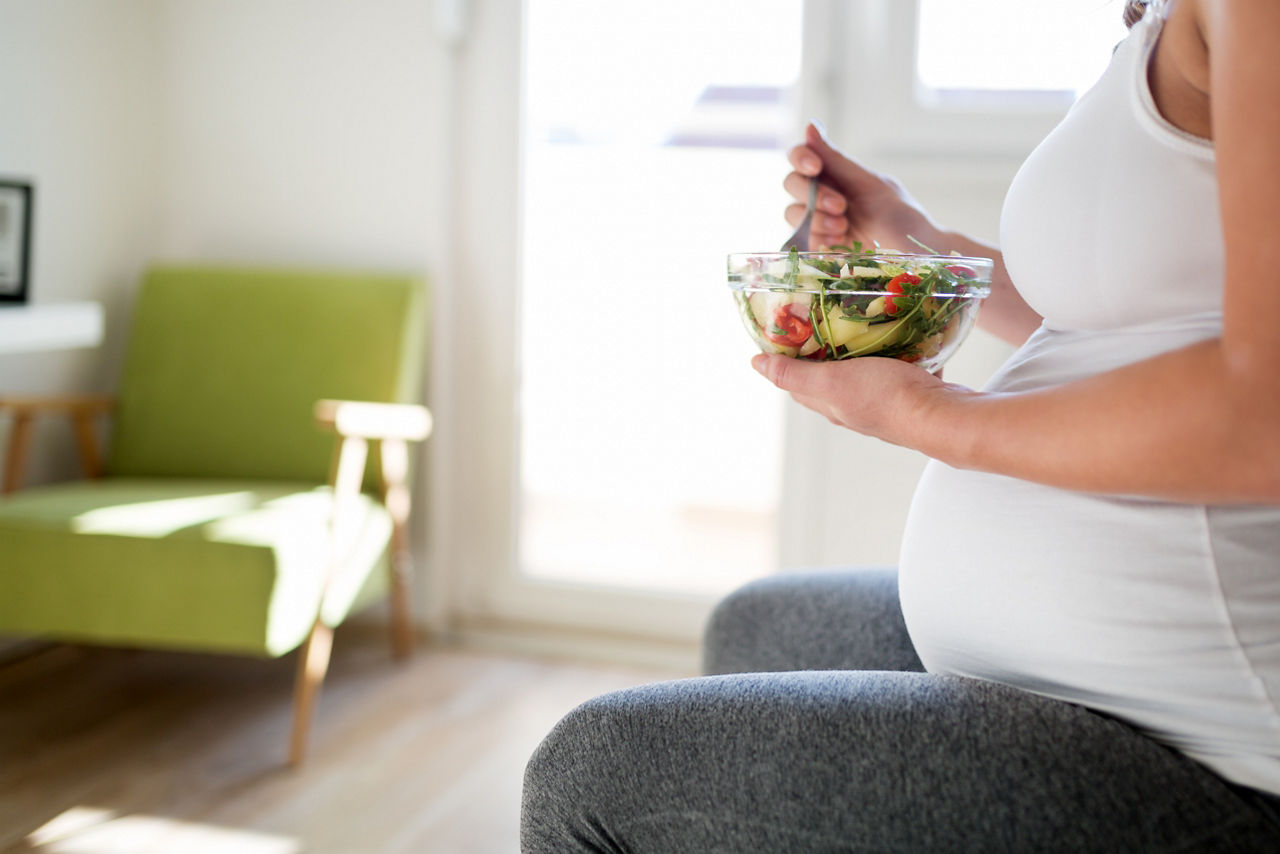Breastmilk is the best for babies. The World Health Organisation recommends exclusive breastfeeding for the first six months of life. Unnecessary introduction of bottle feeding or other food and drinks will have a negative impact on breastfeeding. After six months of age, infants should receive age-appropriate foods while breastfeeding continues for up to two years of age or beyond. Consult your doctor before deciding to use infant formula or if you have difficulty breastfeeding.
- Week 1
- Week 2
- Week 3
- Week 4
- Week 5
- Week 6
- Week 7
- Week 8
- Week 9
- Week 10
- Week 11
- Week 12
- Week 13
- Week 14
- Week 15
- Week 16
- Week 17
- Week 18
- Week 19
- Week 20
- Week 21
- Week 22
- Week 23
- Week 24
- Week 25
- Week 26
- Week 27
- Week 28
- Week 29
- Week 30
- Week 31
- Week 32
- Week 33
- Week 34
- Week 35
- Week 36
- Week 37
- Week 38
- Week 39
- Week 40
A Healthy Pregnancy Diet for Baby’s Healthier Future
Your baby’s brain starts forming just 3 weeks after conception. By week 12, it would start stretching and kicking. (NUH) Did you know that the food you eat plays a vital role in your baby’s development? Make sure you get the best nutrition at every stage of your pregnancy!
From bloating to backache, pregnancy sure isn’t glamorous, mamas. Plus, your baby relies on you for their nutrition, so you now need to fuss over your diet.
Indeed, the food you eat during pregnancy provides a constant source of nourishment for your baby. It lays the foundations for all future development and builds the immune system for their lifelong health and well-being. But here’s the good news – eating well is not as hard as you think!
A Guide to a Good Balance
Wondering what to eat other than good ol’ sliced fish soup? A healthy pregnancy diet is one that includes a variety of foods from the different food groups! Here’s how to get started – include foods from each of the following food groups each day, and try to keep fatty or sugary foods to a minimum.
· Starchy foods: Choose wholegrain varieties for a healthy intake of energy, fibre, calcium, iron and B vitamins.
· Fruit and vegetables: Try to eat at least five portions a day to provide your recommended daily vitamins and minerals. Enjoy them fresh, frozen, tinned, dried or juiced in a smoothie.
· Milk and dairy foods: Sources of protein and calcium. Choose lower-fat varieties for a healthy intake with fewer calories.
· Non-dairy proteins: Eat meat, fish, eggs, beans and other non-dairy sources of protein every day, including 2 portions of oily fish per week.
· Fatty or sugary foods: Cakes, biscuits, crisps/potato chips and other fatty or sugary foods have little nutritional value. Try to limit your intake and choose healthier foods instead.
Should I Start Eating For Two?
Although your pregnancy diet supports you both, there’s no need to overindulge! You don’t need extra calories for the first trimester and the first half of your second trimester. In fact, your recommended calorie intake does not change till the third trimester, when your needs increase slightly.
Before ordering that extra tang yuan or kueh kueh, remember that eating more than you need can lead to excessive weight gain. This affects your baby’s development and has been linked to complications such as large birth weight and an increased risk of caesarean birth.

Connect with our team of experts
We provide advice and support for you on your parenthood journey




